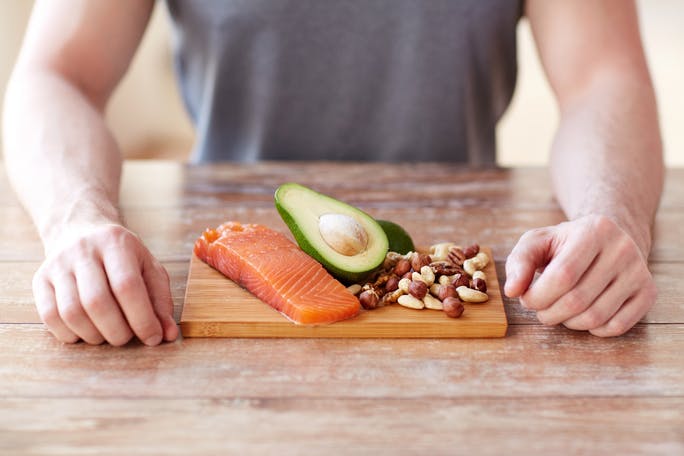Paleo Vitamins and Supplements: Supplements and Minerals for those on a Paleo Diet

Paleo is just one of many diets to become popular in recent years. As with any diet, you should talk to your health care provider before embarking on a new weight loss journey. There might be some things to watch out for when cutting down or eliminating certain types of food, especially if you know you are at risk for certain health conditions.
If you're cleared to try paleo, there are some vitamins you should consider taking to offset any nutritional imbalance this diet might cause.
What is Paleo?
Paleo refers to "Paleolithic," the era roughly two million years ago when early humans typically subsisted on a hunter-gatherer supplied diet. Proponents of the paleo diet believe that our genes and anatomy have not changed substantially since those days and neither has what our bodies need in terms of nutrients.
Paleo dieters seek to mimic the diet our ancestors ate, believing it will lead to lower body fat as well as lessen the risk of diseases such as diabetes, heart disease and cancer.[1]
Paleo diet designers assume that these ancestors didn’t have the tools and technology to farm or cultivate livestock. They also believe that early humans subsisted mostly on the fruits and vegetables they could scavenge as well as the lean meat they could successfully hunt or catch. Paleo adherents typically eat only:
- Fish
- Fruit/vegetables
- Nuts
- Seeds
- Lean Meats
Though there are some disagreements about what specific fruits and vegetables were available in the Paleolithic era, generally this diet is high in protein and fiber while low in fat and carbohydrates, and avoids salt and sugar.[2]
Vitamins and Supplements to Consider
When you go paleo, you usually cut all dairy, whole grains, and processed food out of your diet. This can unfortunately mean that you no longer get some important nutrients.
- Calcium: Although you can get calcium from certain types of leafy greens and fish, you would have to eat an enormous amount of them every day in order to get the daily recommended value of calcium.[3]>
- B-Vitamins: B-vitamins help our bodies release energy from carbohydrates and fats as well as process and transport nutrients and oxygen throughout the body.[4] By adhering to the paleo diet, you may cut out grains like rice, which is a good source of vitamin B1.
- Vitamin D: Like calcium, this vitamin plays an important role in our bone health. Many people already don't get enough of this important nutrient, so eliminating foods such as butter, cheese, and milk might prove it is cause for concern.[5]
If you are interested in trying paleo, you should ask your healthcare provider about supplements to make sure that you maintain these vitamins at their recommended levels. You can find calcium, B-vitamins, and Vitamin D in Centrum products.
Other Potential Paleo Pitfalls
While you will want to discuss any dietary changes with your healthcare provider, you might not even see the results that you want with a paleo diet. It is difficult to achieve sustainable weight loss with this diet—it's simply too hard to rigorously follow it for life.[7] It can also be difficult to plan meals, which requires preparing fresh food bought every week. The focus on meat and produce could mean your grocery store trips get more expensive, too.[8]
Nutrition for Now
We can't know for sure all the details of our ancestors' diets: we weren't there to see it, and no archaeological record paints a full and complete picture. Although we can guess that our bodies evolved to suit the environment Paleolithic humans lived in, our diets today should provide a balance of the nutrients we need to energize ourselves, maintain a healthy body weight, and minimize the risk of chronic diseases.
There is some good in the paleo approach: it’s a very smart idea to avoid highly processed foods and curb the amount of salt and sugar in the diet. But eliminating entire categories of food such as whole grains and dairy can create nutritional gaps.
In general, medical supervision of people on the paleo diet is recommended: your healthcare provider will have the most accurate view of your health and nutritional status, and whether this diet is right for you. Talk to your healthcare provider today about vitamin and supplement options while on the paleo diet, and be sure to check in with them regularly if you start following this diet.










